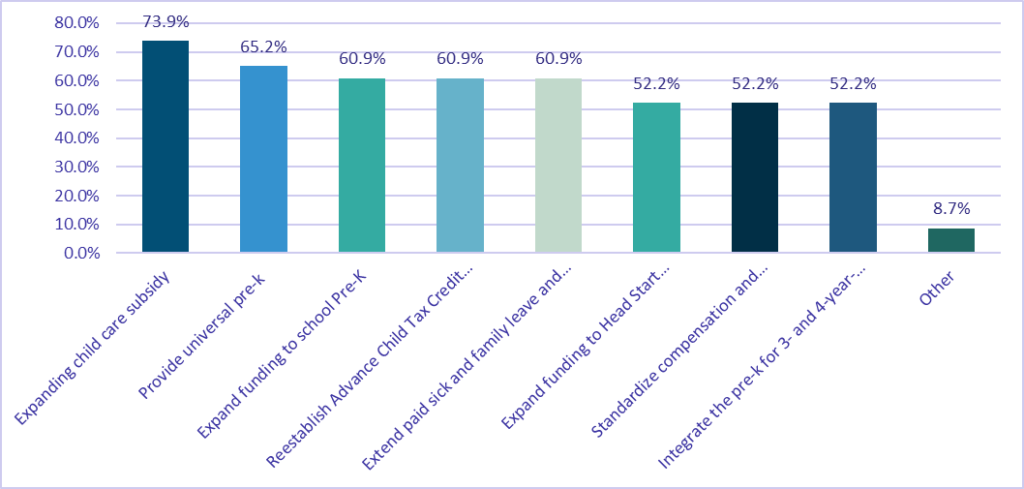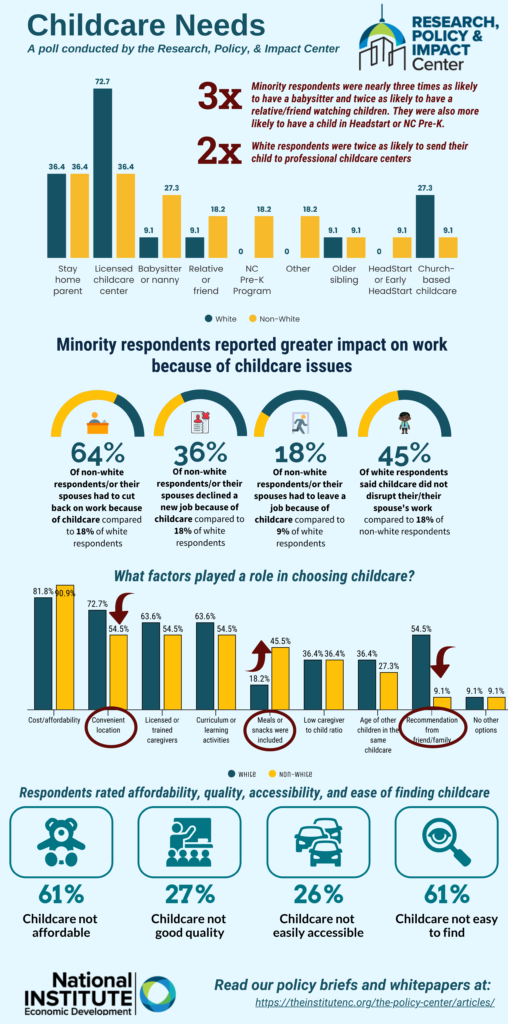The need for Universal Pre-K and Expanded Childcare Options
There are clear benefits to pre-kindergarten programming. There is evidence that children experience lasting benefits from the development of non-finite executive functioning skills like linguistic dexterity, reading comprehension, and critical thinking as well as socioemotional skills like self-control and confidence early in life. The lasting benefits of the development of cognitive and socioemotional skills in preschool create ripple effects throughout a child’s life, particularly those from low-income families, resulting in higher educational achievement and positive outcomes in employment, crime, and health. Attendance in high-quality preschool increases children’s readiness for school, narrowing the skills gap between lower-income children and their higher-income peers.

Constituents of the National Institute of Minority Economic Development, including small business owners and minority workers across the state, were polled recently about their needs for childcare. Affordability was the major issue for both white and non-white respondents with 61% of respondents overall saying childcare was not affordable. White respondents paid on average $995 or more monthly while non-white respondents paid $455. Factoring differences in reported income, we see that both groups are paying about 10-11% of monthly income on childcare. Non-white respondents were less likely to use licensed childcare centers or church-based preschools and were more likely to use in-home babysitters, relatives or friends, NC Pre-K program, or Head Start programs. White respondents were more likely to be influenced by location, licensing, curriculum, and recommendations from family or friends. Non-white respondents were more likely to be influenced by affordability and whether meals were included. Minority households were more impacted by childcare needs with two-thirds (64%) reporting they or their spouses had to cut back on work because of childcare (as compared to only 18% of white respondents). Three-quarters of respondents (74%) felt that expanding the childcare subsidy and two-thirds (65%) felt that providing universal pre-k would improve the availability, quality, and affordability of childcare.

